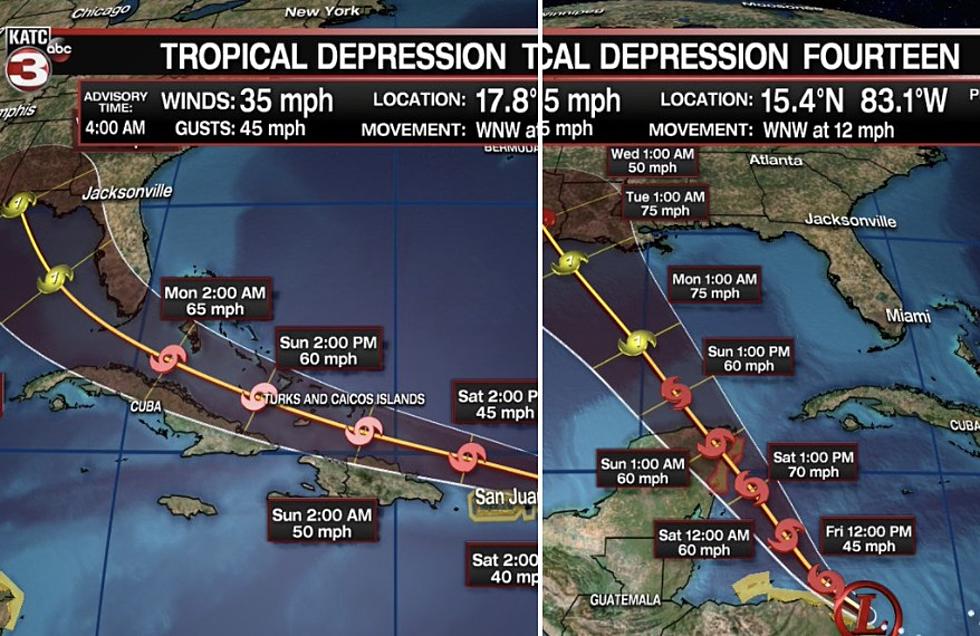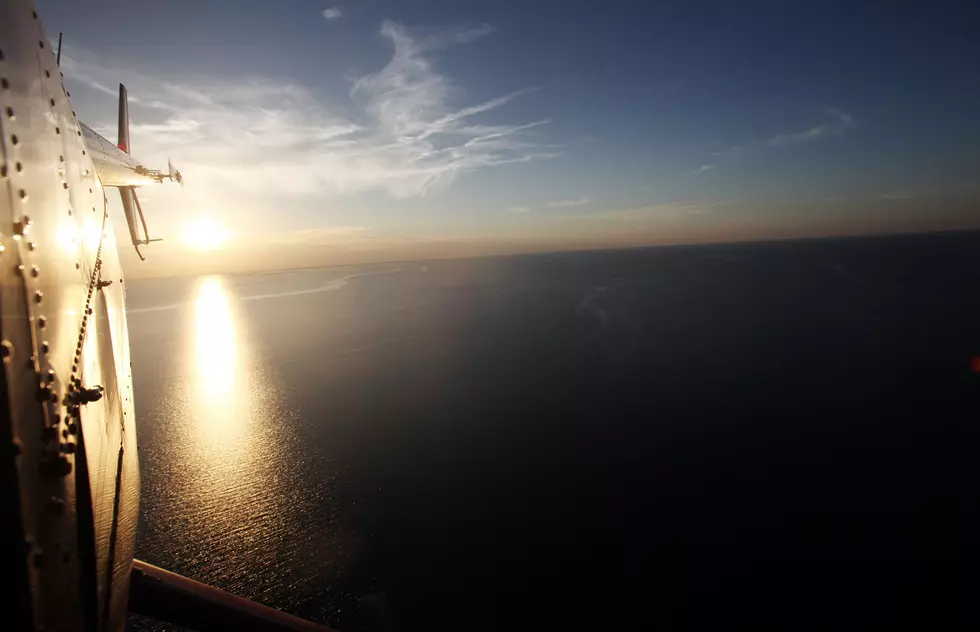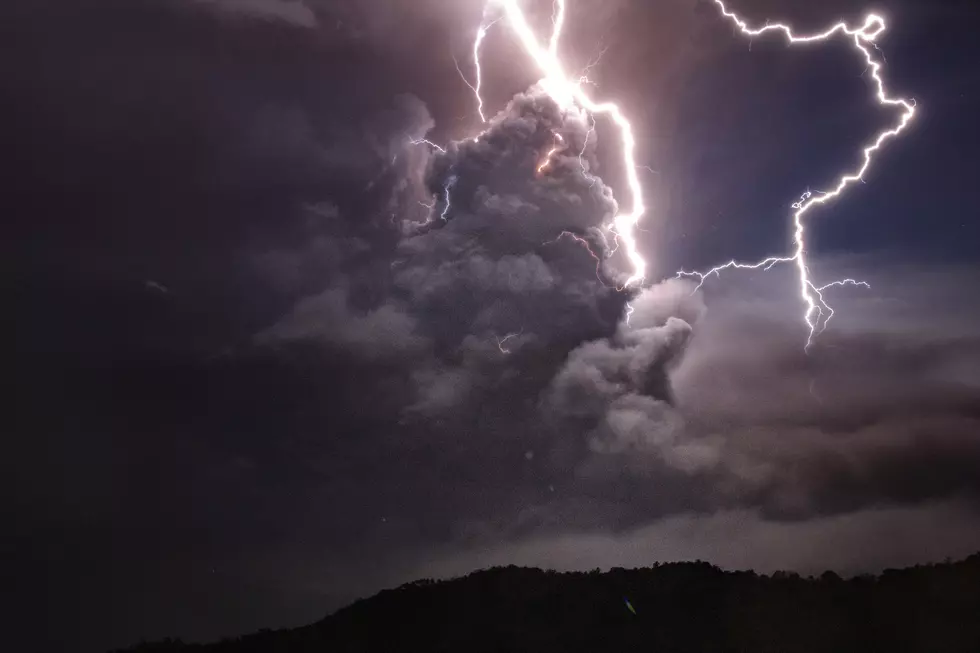
With 2 Potential Storms In The Gulf, Louisiana Could Possibly Experience The Rare ‘Fujiwhara Effect’
Are you ready for the Fujiwhara effect?
It sounds like some sort of ancient ritual and in some ways, that's exactly what it is. A Fujiwahara effect is when "two nearby cyclonic vortices orbit each other and close the distance." As of today, it is possible that we may have two tropical storms in the Gulf of Mexico early next week.
While social media throws around "Perfect Storm" movie quotes, KATC meteorologist Daniel Phillips broke down the likely reality of what we'll probably see between these two "storms" via Twitter.
This has only happened twice before: September 1933 and June 1959.
According to WBRZ, something similar took place back in 2002
Tropical Storm Fay made a track towards Texas, while Tropical Depression Edouard was coming off the western coast of Florida. Tropical Depression Edouard ended up being absorbed by more intense Tropical Storm Fay.
While we still have to wait to see exactly what will take place with tropical depressions #13 and #14, many are wondering if they could potentially combine to make some type of mega-storm. The truth is the Fujiwhara effect makes that scenario an unlikely one.
When two hurricanes pass close to each other, they begin to "dance" around their common center. If one is stronger than the other, the smaller one will orbit it and eventually collide with the more intense storm. If the two storms are closer in strength, they will gravitate towards each other until they reach a common point and merely spin each other around before going on their own paths.
I definitely trust Sakuhei Fujiwhara and I surely hope his logic rings true because 2020 has been weird enough already, right?
Ten Things You'll Find in a Typical Louisiana Home
More From Hot 107.9





![Aerial Shots Show Enormous Response to Hurricane Ian in Florida [PHOTOS]](http://townsquare.media/site/34/files/2022/09/attachment-GettyImages-1243570665.jpg?w=980&q=75)



